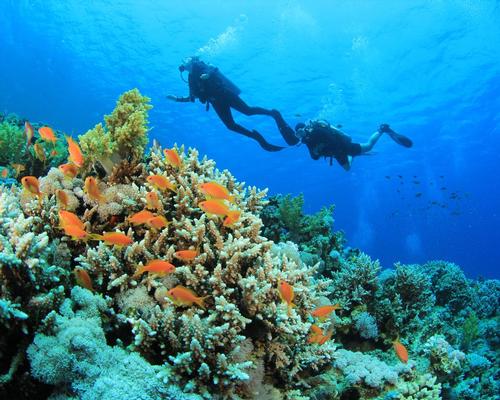04 Jul 2017
Coral reefs at risk of extinction unless global warming effects are curtailed, warns Unesco
BY Tom Anstey

Unesco’s World Heritage Centre has said that its listed reefs are likely to disappear by the end of the century unless global CO2 output can be reduced drastically.
Over the last three years, 21 of 29 World Heritage-listed reefs have suffered from severe heat stress, with warming waters devastating the natural wonders, causing usually colorful corals to become white and translucent – a process known as coral bleaching.
According a new report by Unesco, the social, cultural and economic value of the world’s coral reefs has been estimated at US$1tn (€881bn, £774bn) annually. The report also says that climate-related loss of reef ecosystems will total US$500bn (€440.5bn, £387bn) by 2100, with economies reliant on reefs severely affected.
“All properties will experience annual severe bleaching, and thus will cease to host functioning coral reef ecosystems by 2100 unless CO2 emissions are reduced,” said the report.
“Delivering on the Paris Agreement target of holding the increase in the global average temperature to well below 2°C above pre-industrial levels and to pursue efforts to limit the temperature increase to 1.5°C offers the only opportunity to prevent coral reef decline globally.”
In more recent times a separate study predicted that the Great Barrier Reef in Australia would lose an estimated AU$1bn (£777m, €733m, £618m) in annual tourist revenue should bleaching continue at its current rates. At the Great Barrier Reef, 93 per cent of its coral was affected by the bleaching process last year, with 22 per cent dying as a result.
“The 29 globally significant coral reefs on Unesco’s World Heritage List are facing existential threats, and their loss would be devastating ecologically and economically,” said Dr Mechtild Rossler, director of the World Heritage Centre. “These rainforests of the sea protect coastal communities from flooding and erosion, sustain fishing and tourism businesses, and host a stunning array of marine life.”
Coral bleaching was first recorded in 1983, but the past three years – the hottest globally on record – have been particularly damaging, with 72 per cent of World Heritage-listed reefs affected.
To download the full report, Impacts of Climate Change on World Heritage Coral Reefs, click here.
Close Window